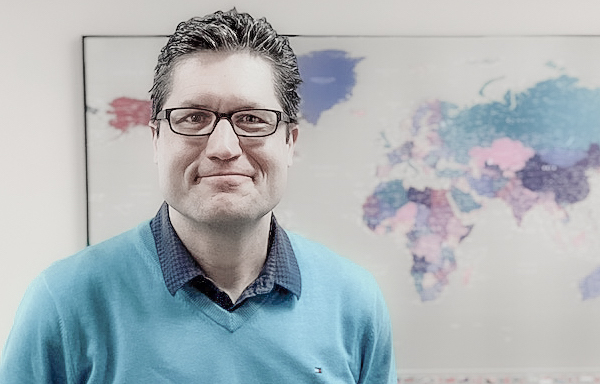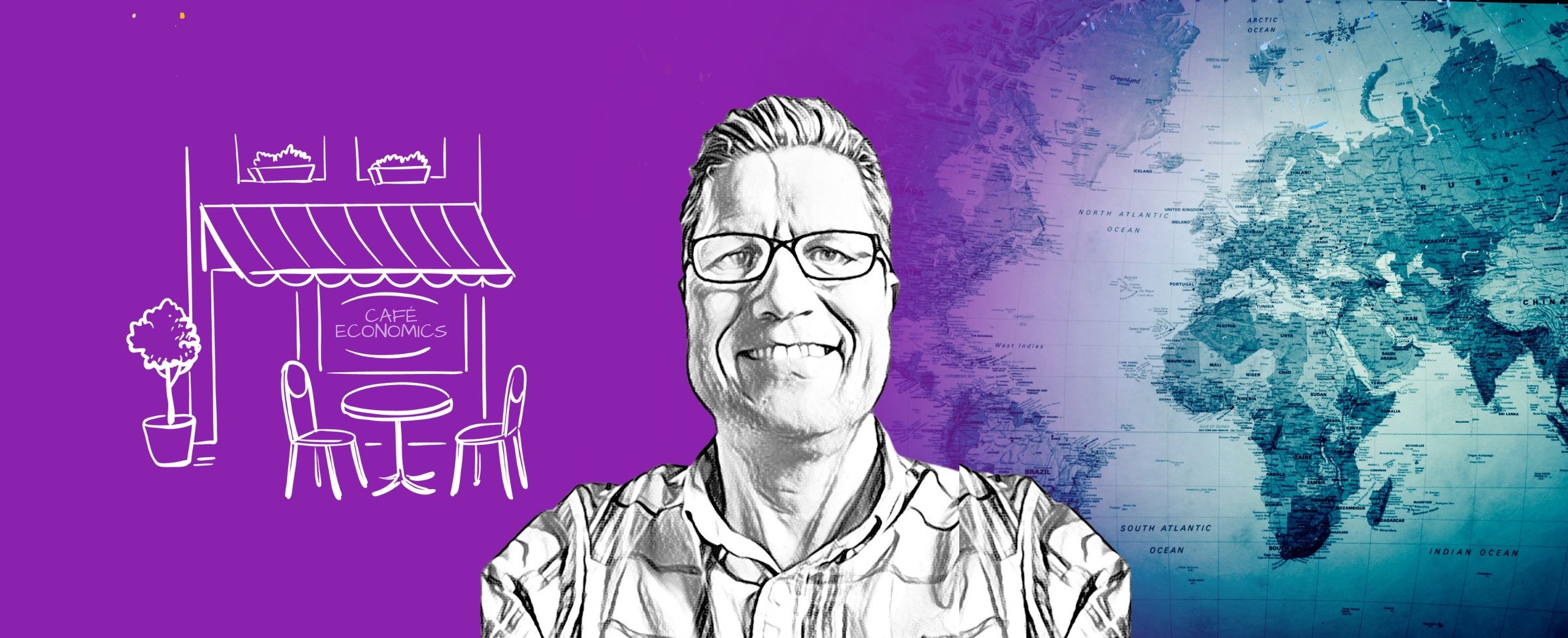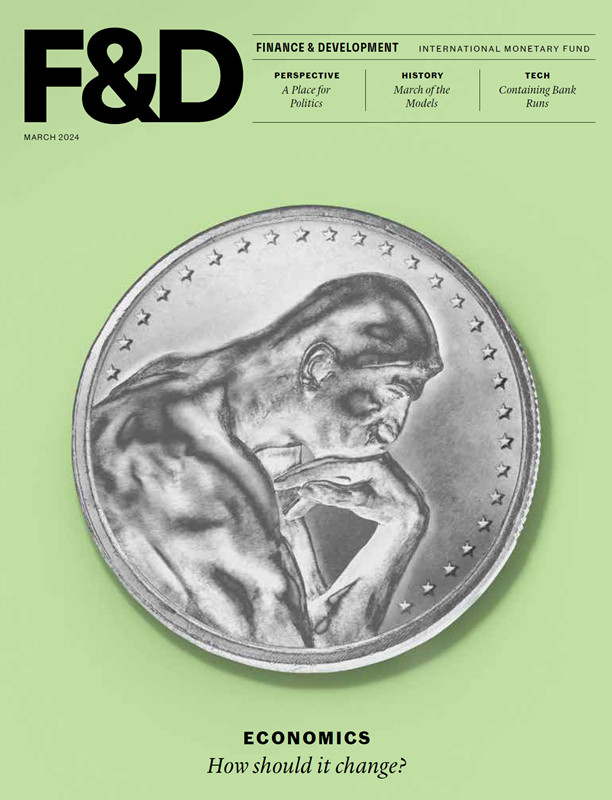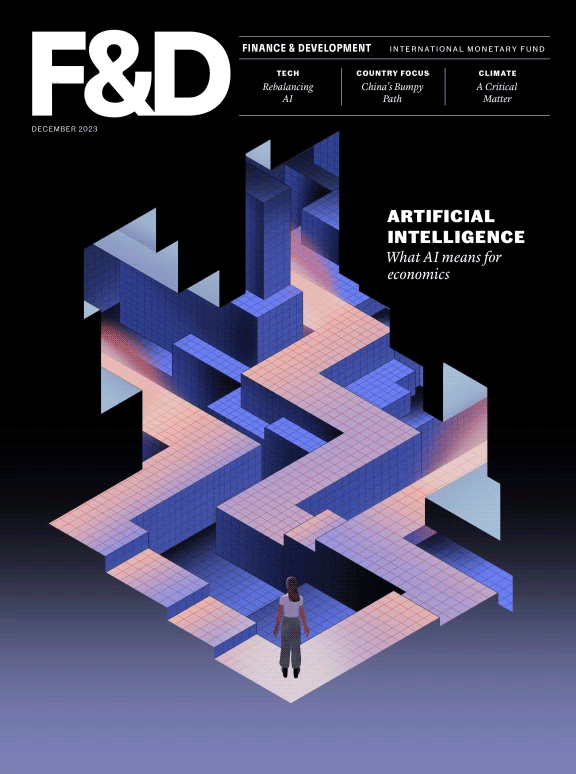If integrated properly, Ukrainian migrants can bring economic benefits to their host countries
IN AN INTERVIEW with F&D’s Bruce Edwards, economist Giovanni Peri argues that refugees from Ukraine may be a human capital windfall for receiving countries like Poland, Romania, Moldova, and Hungary. He also suggests that the war is further sapping Russia’s human capital. Peri, a native of Italy, is professor of economics at the University of California, Davis, and director of its Global Migration Center. He has spent 15 years studying the economics of migration, which he believes is an important engine of change, evolution, and growth.
F&D: At this point, more than 4.5 million people have fled the war in Ukraine. Can the neighboring countries afford to host all these people?
PERI: The ability of countries in Europe to deal with this type of emergency will certainly be tested. Poland, Romania, Moldova, Hungary—the closest countries—are receiving at least 3 million of the 4.5 million and they could be strained. There is a potentially significant short-term cost.
F&D: At least some of Europe’s past migration flows were economic migrants. How does that compare with these Ukrainian refugees?
PERI: A refugee leaves in a situation of emergency with much less planning. At first, they will need accommodations they have not planned for, and they will have basic needs that economic migrants normally plan ahead for and have covered. A second important difference is that they come from trauma, which could affect their physical and mental health in the short run. Third is a large amount of uncertainty. They don’t know how long the war will last. They don’t know their final destination. And finally, refugees come in all of a sudden in relatively large groups.
F&D: A lot of your work has been looking at the economic drivers of migration. A big factor is wages. Was that happening in Ukraine to any great extent before the war?
PERI: Definitely there had been a significant migration of Ukrainians. In Europe, the largest numbers are in Poland and then in Germany, Italy, France. In Poland, we’re talking more than 1 million Ukrainians who migrated. The numbers in Germany, Italy, France were in the hundreds of thousands. There is actually a significant diaspora of Ukrainians in Canada and in the US, over 1 million. Particularly in Italy and France and, in part, Germany, there is a very significant migration of women, sometimes 70 percent. They have worked largely in hospitality, assistance for the elderly and disabled, personal services sectors that employ a large number of women.
F&D: Do the host countries simply provide shelter while the war plays itself out? Or do they help refugees integrate?
PERI: One remarkable thing about this crisis is the very decisive and coordinated response of the European Union. Certainly in the shorter run, shelter and primary assistance are a need that some of these countries will have to deal with. But immediately—and this is very unusual—the Ukrainian refugees have been allowed to move freely in the European Union to access jobs. Their children are allowed in schools. This approach is certainly dealing with the emergency in the short run, but also learning from the past and recognizing the importance of integration of refugees from an economic point of view. Which then turns refugees from a cost to an investment, to an asset. Many Ukrainian refugees are extremely uncertain about their futures and not very willing to go too far. But countries such as Germany, France, Italy, Switzerland are starting to encourage refugees to come to these countries. I think this is encouraging. And as economists think in the long run, this could be a valuable approach to integrating refugees.
F&D: What are the fiscal implications of supporting refugees at that level? There’s also a political aspect: a public perception that immigrants pose a burden on public finances.
PERI: In the short run there will be costs. It’s not super easy to quantify them, but for the European Union, refugees may have a cost of $8,000 to $10,000 per person in the first year in terms of housing and support. That’s not trivial. However, all the studies show that in the second, third, fourth years—especially if the refugees access the labor market, especially if in the first year they have also been supported and assisted with some policies to find a job, to learn the language—they become productive assets. They can be employed, and the income they generate is much larger than the cost. There is an opportunity to invest in the human capital of refugees. Many economists argue that these refugees are an opportunity for several European countries because they come at a point when there are significant shortages of workers for many of the jobs they would take. For example, in personal assistance, in hospitality, in food industries—the right policies can match some of these refugees to these jobs and turn the short-term cost into a return for the receiving economy—very soon, in fact.
F&D: What happens if the investment is not made to help the refugees?
PERI: The difference between investing early and with this type of policy support and not investing could be large in the long run. Many of these people could remain at the margin of employment and have a harder time integrating; their kids’ future could be much riskier. So clearly for those who stay, there will be a long-run cost without this investment—in terms of unemployment, lower employability, maybe even higher probability of marginalization, of crime, of addiction.
F&D: Does it risk increasing competition for jobs and even lowering wages?
PERI: It will depend on how many of these people really look for a job, but also what types of jobs they take. There is a way this contribution of refugees can really be more positive than negative. Some very interesting policies for refugees have been adopted, for instance in Denmark, in the last five to six years: one of the services matches refugees with sectors experiencing hiring shortages. This would increase the probability for them to find a job and minimize the competition because clearly these jobs don’t have people available to do them.
Immigrants tend to do somewhat different types of jobs than natives. So the competition with natives is not so strong. Instead, they have a stimulating effect at the local level, allowing companies to hire, to grow. They spend, and they grow the economy.
F&D: The war will end at some point, and Ukraine will be faced with rebuilding the country. What will it mean to have lost so many people to migration if they decide to stay in these host countries?
PERI: One scenario is that the war ends and Ukraine maintains a level of independence, a level of economic activity that will encourage a lot of people to return. The time they’ve spent abroad may not be a bad thing. They can help their local economy through trade, investment, higher skills, and entrepreneurship.
But there is also a scenario in which the war lasts a long time, and people won’t go back. In this case, the drain of people would be even bigger because split families will reunify in the country where their migrants are.
The brains, the professionals will continue to leave. This clearly will generate brain drain. This diaspora could be an asset if they go back and the situation is right, or it could generate even more of a drain if things continue to go badly in Ukraine.
F&D: I assume that Russia will be suffering the same consequences. Will Russia also have lost some valuable human capital by the end of all this?
PERI: Russia comes into this war already with some remarkable brain drain and flight. Everybody knows that during the collapse of the Soviet Union a lot of scientists and engineers left for the West, but fewer know that this brain drain has continued. In the early 2010s, when Russia invaded Crimea and became a particularly strong authoritarian state, a lot of Russians left. And now there is news that hundreds of thousands of Russians want to leave.
This is very worrying for Russia: on one hand, those are more likely to leave are those with skills who can be easily employed in the West—the engineer, the mathematician, the scientist. These people are crucial to building an economy. Also likely to leave are those particularly averse to the regime, who would be the critical voices. In the longer term, this war could be very damaging to their economy.
F&D: How did you end up specializing in migration?
PERI: When I finished college, I was in Italy, and you had to do either a military or a civic service. I chose to do civic service and was sent to a center for refugees. These were the '90s, so Italy was receiving people from Eastern Europe. I found incredibly fascinating the stories of these people and their personalities. I also was struck by the gap—how the media were alarmed about this invasion and, to the contrary, what interesting, valuable, and incredible assets these people were, both from a personal and an economic point of view. Then I came to the US as a migrant myself to do my PhD, and this just cemented my idea that migration was such an important engine of change, evolution, and growth.
Podcast

The war in Ukraine has sparked one of the biggest refugee crises of modern times. So, can Europe afford to accommodate the millions of people coming across its borders?
Opinions expressed in articles and other materials are those of the authors; they do not necessarily reflect IMF policy.









